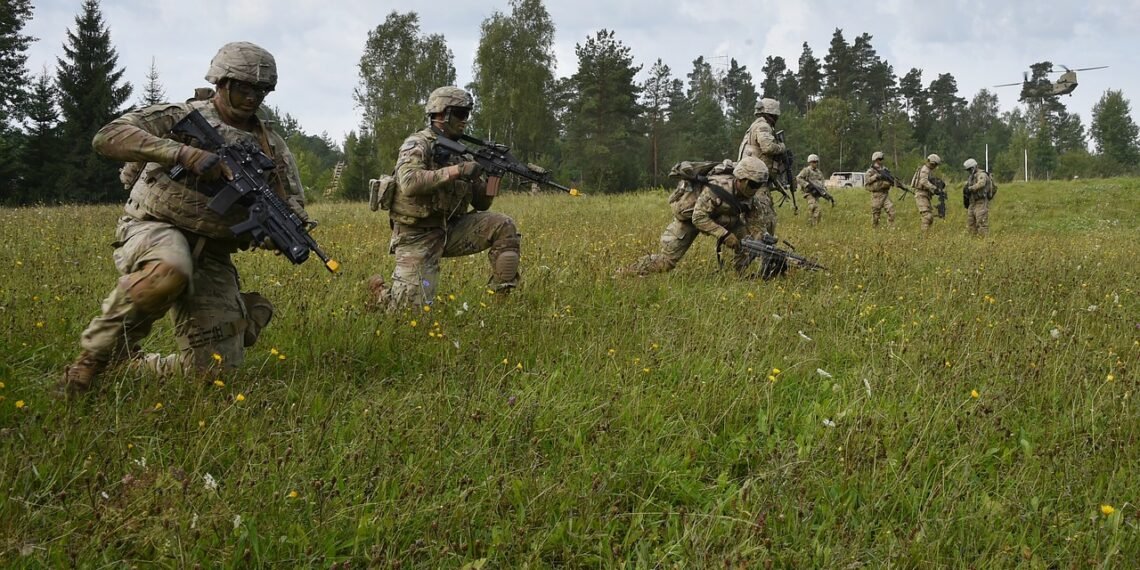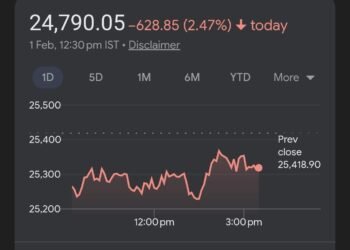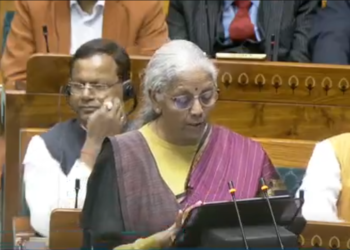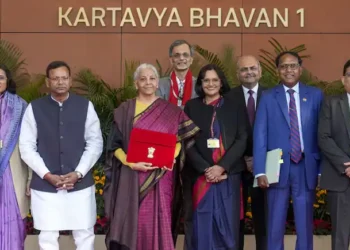The Kuki Alliance for Nampi Awakening Movement (KANAM) urges unity, condemns power grabs, and warns youth against being manipulated into internal conflict.
New Delhi
July 18, 2025 —The Kuki Alliance for Nampi Awakening Mo (KANAM), a prominent civil and political platform representing the Kuki-Zo community, has issued a stern public advisory warning of an escalating internal crisis within the community. In a detailed statement released on Thursday, the body accused the United Kuki National Army (UKNA), an armed faction, of attempting to destabilise traditional tribal institutions and hijack the leadership of the ongoing political movement.
Describing the current moment as one of “the darkest and most critical periods” in Kuki-Zo history, KANAM said that while the community has withstood immense external pressure since the outbreak of ethnic violence on May 3, 2023, it now faces a growing threat from within.
READ: Manipur’s Echo Across India: Tribals in Four States Renew Demand for ‘Bhil Pradesh’
“We have resisted annihilation and stood shoulder to shoulder in defending our land and our people,” the advisory stated. “But even as we continue to fight for survival, a dangerous rot from within is taking shape.
Click here to read the detailed letter: KANAM APPEAL.pdf
The organisation took particular aim at UKNA, accusing it of launching a calculated campaign to delegitimise existing institutions such as the Kuki-Zo Council (KZC), the Kuki Inpi, and various groups under the Suspension of Operations (SoO) agreement.
“What began as a spontaneous uprising by courageous youths is now being manipulated into a reckless power grab,” KANAM warned. “Led by people with little understanding of governance, this movement threatens to undermine the very foundations of our struggle.”
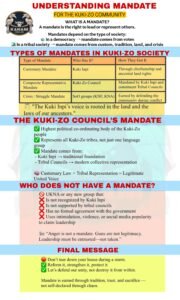
‘Grief Must Not Become Arrogance’
KANAM acknowledged the role played by local volunteers and youth in the early days of the violence, particularly in defending their villages and communities when government protection was absent. However, it cautioned against what it called the “weaponisation of grief.”
“We acknowledge the trauma and loss that many of these youths have endured,” the advisory said. “But grief must not be twisted into rebellion, and pain must not be weaponised into arrogance.”
“Our boys are being misused. Our children, once heroes of the resistance, are now being lured down a path of chaos, destruction, and fratricide—by voices who will never pick up a gun themselves, but are eager to use others as disposable pawns.”
Mandate Through Custom, Not Coercion
The statement offered a firm defense of the traditional and legal legitimacy of current tribal institutions. KANAM argued that in indigenous societies like that of the Kuki-Zo, mandates for leadership are not won through elections alone, but through continuity, custom, and collective memory.
’Manipur: UKNA Claims Responsibility for Killing, Admits Executing Rival Rebel Leader
“The Kuki Inpi’s authority stems from the traditional institution of chieftainship, rooted in hereditary customs, land stewardship, and oral tradition,” it explained. “This is protected under Indian constitutional provisions and known in legal discourse as jus consuetudinarium—the law of custom.”
’Manipur: UKNA Claims Responsibility for Killing, Admits Executing Rival Rebel Leader#ManipurViolence #KukiFactionFeud#UKNA #Churachandpur #InsurgencyCrisis https://t.co/BaXQfADfq7
— POWER CORRIDORS (@power_corridors) June 30, 2025
KANAM also described the Kuki-Zo Council (KZC) as a unifying body that carries a “dual mandate”: one from the Kuki Inpi as the moral backbone of the community, and another from recognised tribal councils that represent the diverse ethnic groups within the Kuki-Zo umbrella.
“Its strength lies in its inclusiveness, collective structure, and its capacity to bring together diverse voices under one political platform,” the statement said.
SoO Groups ‘Forged in Crisis’
Addressing questions about the relevance and accountability of SoO groups, KANAM said these groups were not created out of convenience but born out of necessity in times of abandonment and violence.
“Groups like the Kuki National Front (KNF) and Kuki National Army (KNA) were forged during the Naga-Kuki clashes as grassroots self-defense initiatives,” the statement read. “Their mandate was earned through sacrifice—through blood, defense, and the trust placed in them by our people.”
READ: Part 1: A Roadmap for Green Farming in the Northeast Hills
The advisory also emphasised that SoO agreements signed with the Government of India are formal and legally binding, monitored by the Union Ministry of Home Affairs.
“These agreements recognise our groups as legitimate stakeholders in the search for a political solution,” KANAM asserted. “This is not some informal understanding—it is a bilateral framework with legal standing.”
A Call for Reform, Not Revolution
While KANAM made it clear that the current institutions must evolve with time, it drew a sharp line between necessary reform and what it called “reckless revolution.”
“Do we demand more transparency, accountability, and inclusivity? Without question,” the advisory stated. “But reforms are about building. Revolution, when misused, leads to destruction.”
The organisation called for the formation of a Community Advisory Body—a bridge between the grassroots and established institutions. This body, composed of elders, youth leaders, scholars, and women’s representatives, would channel public feedback to KZC and the SoO leadership in a structured way.
“This is how mature societies evolve: through dialogue, not destruction,” KANAM said.
Appeal to the Youth
The advisory closed with a direct message to the youth, especially those drawn to or influenced by UKNA.
“You were never meant to destroy your own house. Do not let your trauma be turned into a tool of division,” it said. “You deserve more than to be used as pawns in someone else’s power game.”
READ: Naga Tribes Spurn Dialogue, Clamp Down on Kuki-Zos in Manipur
“If we collapse now from within, no one else will need to destroy us—we will have done it ourselves.”
KANAM stressed that while Meitei extremist violence and state apathy remain unresolved threats, internal unity is the community’s most valuable asset going forward.
“The world is watching. And history is recording,” it concluded. “The Kuki-Zo people are one—one body, one voice, one destiny. Let us not be the generation that forgot that.”



